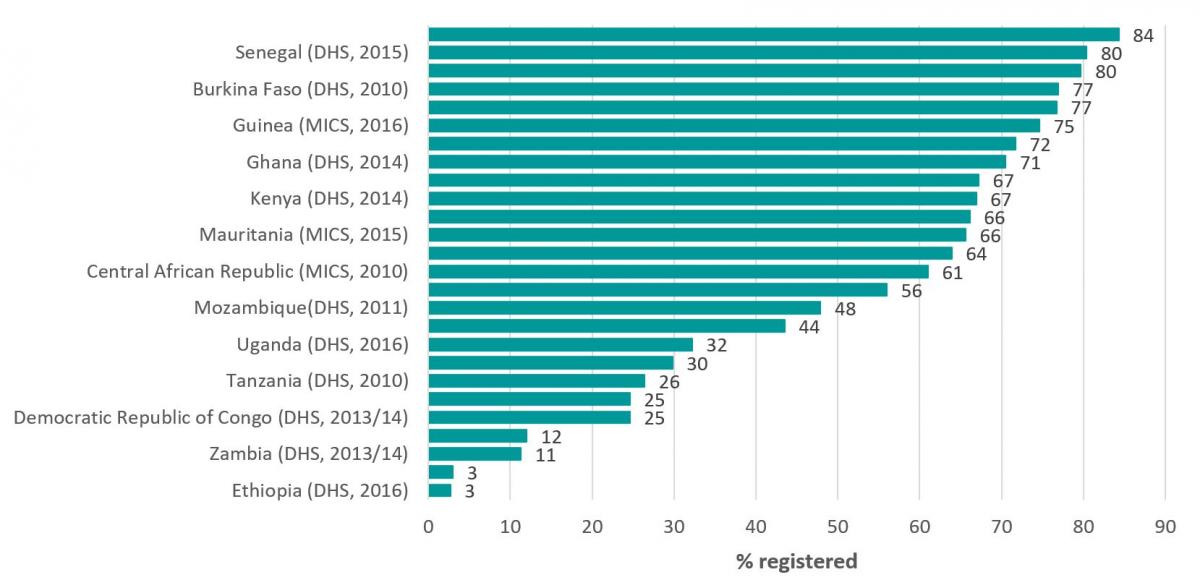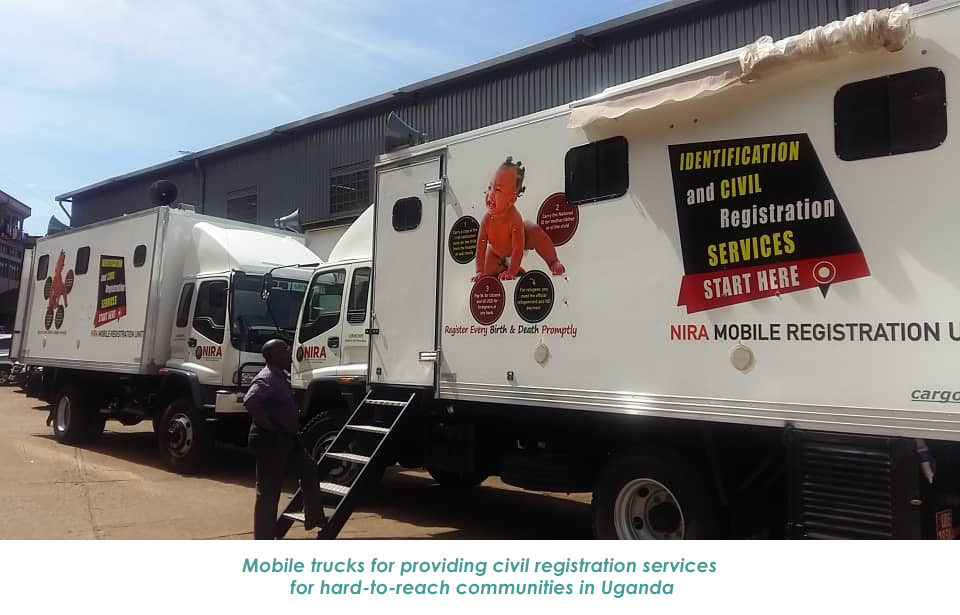Tackling Low Birth Registration in Africa: Birth Certificates Are Key to Ensuring Health, Education, Safety, and Equal Opportunities
Millions of women, men, boys and girls are denied basic services because of weak civil registration and vital statistics (CRVS) systems. Without a birth certificate, children are more vulnerable to child rights violations, including child marriage, child labor and trafficking, and becoming child soldiers. This is even more true in emergencies, where people without birth certificates become excluded from health coverage, access to education, and social protection programs.
Sixteen countries in Africa out of a total of 36 countries supported by the Global Financing Facility (GFF) have less than two-thirds of children aged below five years registered with civil registration authorities in their respective countries. Tackling this challenge will require a joint effort. This year’s Africa CRVS Day is August 10 and is an opportunity to encourage governments, the international community, civil society, and the private sector to work together to find high-impact solutions that will benefit their people.
With well-functioning CRVS systems, all births and deaths are registered, causes of death are recorded, certificates are issued, and vital statistics are produced. With GFF support, strengthening CRVS systems is a priority in country-led Investment Cases; and funding from the GFF Trust Fund, matched with concessional financing from the World Bank’s International Development Association (IDA) is provided to selected countries. Fifteen GFF-supported countries currently include CRVS in their Investment Cases and nine countries have been allocated funds specifically to strengthen CRVS systems. Countries such as Uganda and Liberia have made progress in the past year in strengthening their CRVS systems, and birth registration in particular.
Percentage of children aged below five years registered with the civil registration authority
In Uganda, more than 600,000 children have been registered since February 2019. US$10 million from the GFF Trust Fund and IDA aims to strengthen institutional capacity to deliver and scale-up birth and death registration (BDR) services in health facilities and communities. Along with comprehensive training, coordination and outreach, Uganda has made changes in the Mobile Vital Registration System to enable registration of births that have been notified from hospitals and sub-counties. Innovative methods are used to reach people that live in remote areas. Under the leadership of the Ministry of Health, two mobile registration trucks have been procured to pilot providing BDR services to people in hard-to-reach areas. Procurement processes are underway to develop an electronic integrated civil registration with ID management system and for developing a CRVS strategic plan. BDR services are now offered in 14 districts. Other partners supporting CRVS system strengthening in Uganda include UNICEF, Plan International, WHO, and Global Fund.
With a total of US$1 million allocated to Liberia from the GFF Trust Fund and with support from partners, including UNICEF, WHO and Gavi, the country aims to improve birth and death registration services and expand coverage of the birth and death registration system. To strengthen civil registration at the hospital level, CRVS indicators will be included in hospital performance-based financing. Birth registration services have been expanded to 22 hospitals (59 percent of all hospitals in Liberia), which were provided with registration tools and office supplies to facilitate registration and issuance of certificates in these facilities. Immunization and community maternal and child health outreach services are used to carry out birth registration campaigns. Uniform birth registration forms and certificates and a single web-based birth registration platform have now been adopted throughout the country.
Weak CRVS systems undermine progress and have a negative impact on regular availability of national- and subnational-level data required for efficient government planning and monitoring. This particularly is the case for women, children and adolescents. For example, Niger has the highest rate of child marriage in the world with 77 percent of women aged 25–49 married before reaching 18 years and 28 percent by age 15. Nonetheless, coverage of marriage registration is estimated at only 4 percent and most marriages take place under customary law. Without legal registration it is difficult to claim your rights and access basic services such as health and education.
Africa CRVS day is an opportunity to join voices to make everyone count and ensure that we continue working together on strengthening CRVS, a key mechanism to help improve health and education and create equal opportunities improved for all.

